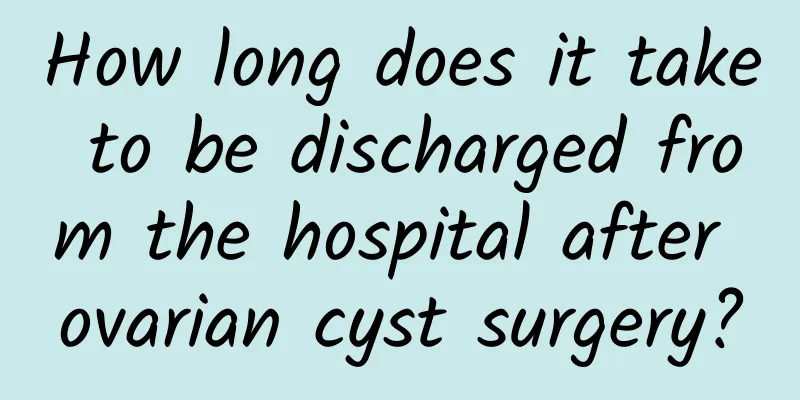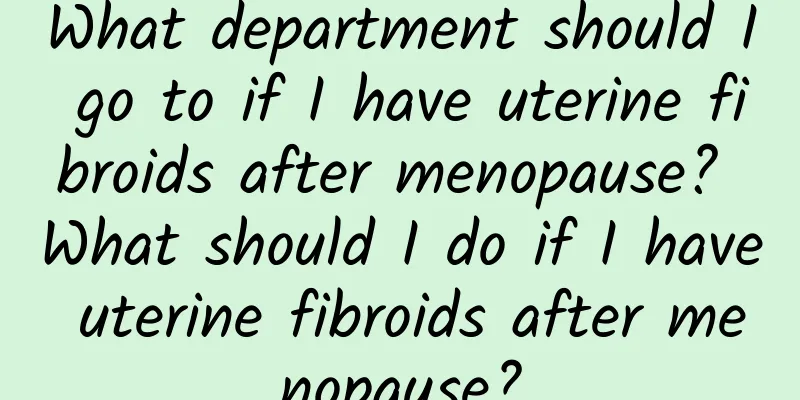What to do about functional uterine bleeding

|
Dysfunctional uterine bleeding is abnormal uterine bleeding caused by endocrine disorders or abnormal uterine structure, which is common in adolescent and menopausal women. Treatments include medication, surgery and lifestyle adjustments. 1. Drug treatment Drug therapy is the first choice for functional uterine bleeding, which mainly controls bleeding by regulating hormone levels. Oral contraceptives: Help restore normal menstrual cycles by regulating estrogen and progesterone levels. Progestogen drugs: such as progesterone, can be used to regulate the growth and shedding of the endometrium and reduce bleeding. Hemostatic drugs: such as tranexamic acid, can help reduce the amount of bleeding and are suitable for acute bleeding periods. 2. Surgical treatment For patients who do not respond to medical treatment or who have severe bleeding, surgery may be necessary. Endometrial ablation: By removing part of the endometrium, the amount of bleeding is reduced. It is suitable for patients who do not want to have children. Uterine artery embolization: It blocks the blood flow in the uterine artery and reduces bleeding. It is suitable for patients with acute massive bleeding. Hysterectomy: In extreme cases, such as uncontrolled bleeding or other serious medical conditions, the uterus may need to be removed. 3. Lifestyle Adjustment Lifestyle adjustments can help improve endocrine disorders and reduce the occurrence of functional uterine bleeding. Dietary adjustment: Increase the intake of iron-rich foods, such as red meat, spinach, etc., to prevent anemia; reduce the intake of high-sugar and high-fat foods to avoid aggravating endocrine disorders. Exercise management: Moderate exercise such as yoga and walking can help regulate hormone levels, but avoid excessive exercise that may cause physical burden. Psychological adjustment: Keep your emotions stable and avoid long-term excessive stress. You can relieve stress through meditation, psychological counseling, etc. The treatment of functional uterine bleeding requires choosing the right plan based on the patient's specific situation. Drug treatment is the basis, surgical treatment is suitable for severe cases, and lifestyle adjustments are helpful for long-term management. If abnormal bleeding occurs, you should seek medical attention in time, identify the cause and receive professional treatment to avoid delaying the condition. |
<<: What symptoms does a Bartholin's gland cyst cause?
>>: Causes of Acute Bartholinitis
Recommend
Which one is more harmful to your body, surgical abortion or medical abortion? What is the difference between surgical abortion and medical abortion?
If you can guarantee a successful abortion, then ...
Simple analysis of the causes of common adnexitis
As a disease that has long troubled female friend...
What is the best medicine for cervical erosion? 3 types of medication for cervical erosion
The treatment of cervical erosion requires the se...
What are the dangers of abortion?
With the development of society, abortion can be ...
What is the cause of acute cervicitis?
Cervicitis can be divided into acute cervicitis a...
Replenish electrolytes after exercise! 2 Tips to Choose Sports Drinks Smartly
The advertisement "If you don't drink en...
Can you tell after a girl has had an abortion?
Whether or not you can see the abortion depends o...
Diagnosis of ovarian cysts
Ovarian cyst is a tumorous gynecological disease,...
Reasonable diet for uterine fibroids
In daily life, everyone pays attention to a reaso...
What foods can I eat if I have uterine fibroids? What foods can I eat if I have uterine fibroids?
What foods can I eat when I have uterine fibroids...
What tests should be done after the abortion?
Postoperative follow-up for artificial abortion m...
How long does it take to get pregnant after laparoscopic surgery for ectopic pregnancy
After laparoscopic surgery for ectopic pregnancy,...
Who is prone to ectopic pregnancy?
Nowadays, more and more people are prone to ectop...
Drink unsweetened soy milk 30 minutes before meals to increase satiety
With the arrival of the long summer vacation, chi...
Introducing the symptoms of chronic adnexitis
Among the many common gynecological diseases, adn...









